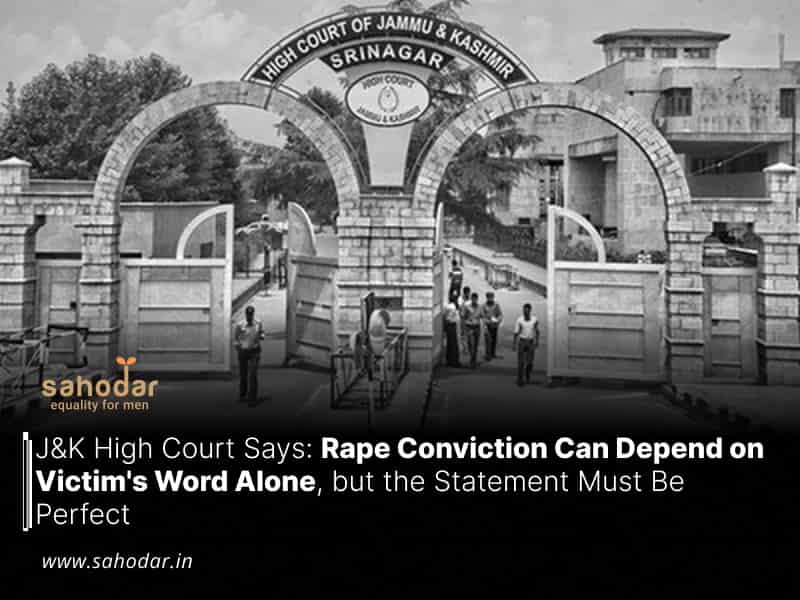High Court of Jammu and Kashmir made the observation while upholding the acquittal of certain men in a rape case where major contradictions were found in the statements of the prosecutrix.
In the recent adjudication of the case State of J&K v. Feroz Ahmad Najar & Anr., the High Court of Jammu and Kashmir and Ladakh explicated that the conviction of an accused in a rape case may be predicated upon the singular testimony of the alleged victim. Nevertheless, the Court emphasized the imperative that such testimony must exhibit impeccable veracity and commendable quality. This pronouncement informed the Court’s affirmation of the acquittal of the aforementioned individuals accused of rape in 2006, with the Court citing insufficiency of evidentiary support.
“On the solitary statement of a victim of rape, conviction of an accused can be based but it is equally true that such statement should be unblemished and of sterling quality,” High Court of Jammu and Kashmir said.
The High Court adjudicated an appeal initiated by the Union Territory of Jammu and Kashmir (J&K) challenging the 2017 acquittal verdict rendered by a Srinagar trial court. The acquittal pertained to charges under Sections 363 (kidnapping), 376 (rape), 343 (wrongful confinement for three or more days), 506 (criminal intimidation), and 109 (abetment) of the Ranbir Penal Code.
The genesis of the case lies in a 2006 first information report (FIR) registered at Rainawari Police Station in Srinagar. The complainant, the father of the victim, reported her missing after purportedly failing to return from school on December 16, 2005. Subsequently, a comprehensive police search located her at Central Jail in Jammu.
The prosecution’s narrative posited that the accused, accompanied by an individual named Shazia, compelled the victim to accompany them to Jaipur, where she allegedly endured rape. Charges were instituted against the accused based on the victim’s statement.
Contrarily, the accused asserted that the victim’s father concocted the case following a dispute. They contended that he purchased a scooter but failed to fulfill the entire payment, leading to escalating conflicts and the filing of the purportedly false case. Additionally, they maintained that the victim had eloped due to an extramarital affair.
However, the trial court acquitted the accused, citing the unreliability of the victim’s statements and questioning her conduct. Notably, the trial court identified inconsistencies between the version presented during the trial and that outlined in the chargesheet, resulting in the acquittal on January 1, 2017.
Disputing this outcome, the government appealed to the High Court, asserting that a rape conviction could rely on the victim’s uncorroborated statement. Conversely, the trial court’s dismissal of the victim’s statement was deemed unjustified. Dismissing these contentions, the High Court identified substantial contradictions in the victim’s testimony, thereby affirming the trial court’s acquittal.
“From the analysis of the statement of the prosecutrix recorded during trial of the case and the statement of the Investigating officer recorded during trial of the case, it is clear that there are major contradictions in her statements on the essential aspect of the case. These contradictions between the version of occurrence given in statement of the prosecutrix under section 161 of CrPC and her statement recorded during trial of the case have been proved during trial of the case,” the High Court held.
The court determined that the statement provided by the prosecutrix lacks credibility, and therefore, the accused cannot be deemed culpable based on her testimony.
“The view taken by the trial court in acquitting the respondents/accused and in holding that the statement of the prosecutrix is unworthy of credit does not deserve to be interfered with by this court while exercising appellate jurisdiction,” the High Court observed.
Consequently, the appeal was rejected, and the exoneration of the accused was affirmed.
Government Advocate Sajad Ashraf represented the J&K government, while advocate Abu Owais Pandit represented the accused.

